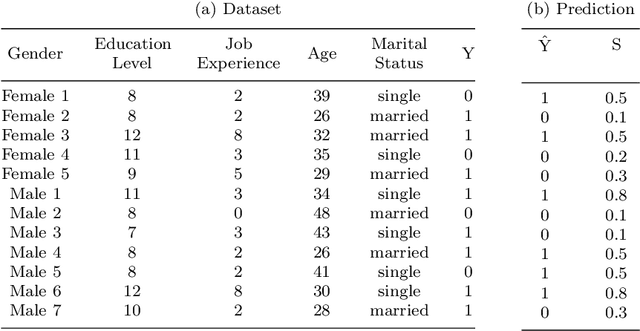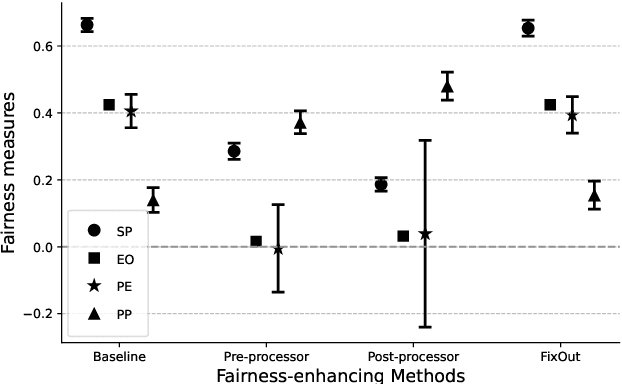Survey on Fairness Notions and Related Tensions
Paper and Code
Sep 16, 2022



Automated decision systems are increasingly used to take consequential decisions in problems such as job hiring and loan granting with the hope of replacing subjective human decisions with objective machine learning (ML) algorithms. ML-based decision systems, however, are found to be prone to bias which result in yet unfair decisions. Several notions of fairness have been defined in the literature to capture the different subtleties of this ethical and social concept (e.g. statistical parity, equal opportunity, etc.). Fairness requirements to be satisfied while learning models created several types of tensions among the different notions of fairness, but also with other desirable properties such as privacy and classification accuracy. This paper surveys the commonly used fairness notions and discusses the tensions that exist among them and with privacy and accuracy. Different methods to address the fairness-accuracy trade-off (classified into four approaches, namely, pre-processing, in-processing, post-processing, and hybrid) are reviewed. The survey is consolidated with experimental analysis carried out on fairness benchmark datasets to illustrate the relationship between fairness measures and accuracy on real-world scenarios.
 Add to Chrome
Add to Chrome Add to Firefox
Add to Firefox Add to Edge
Add to Edge